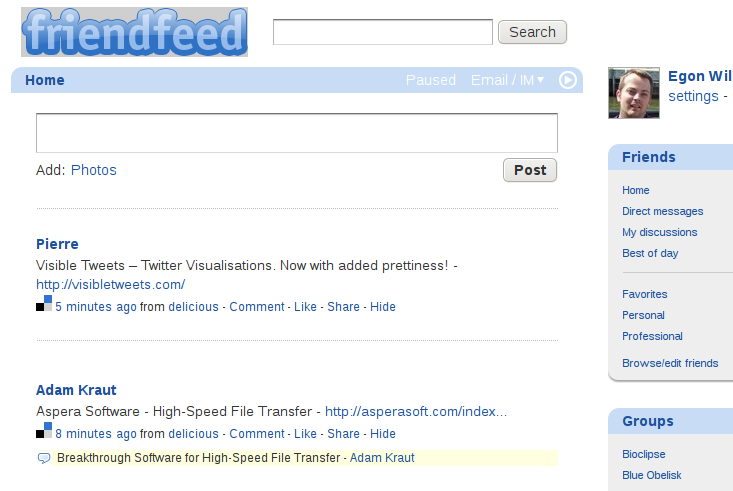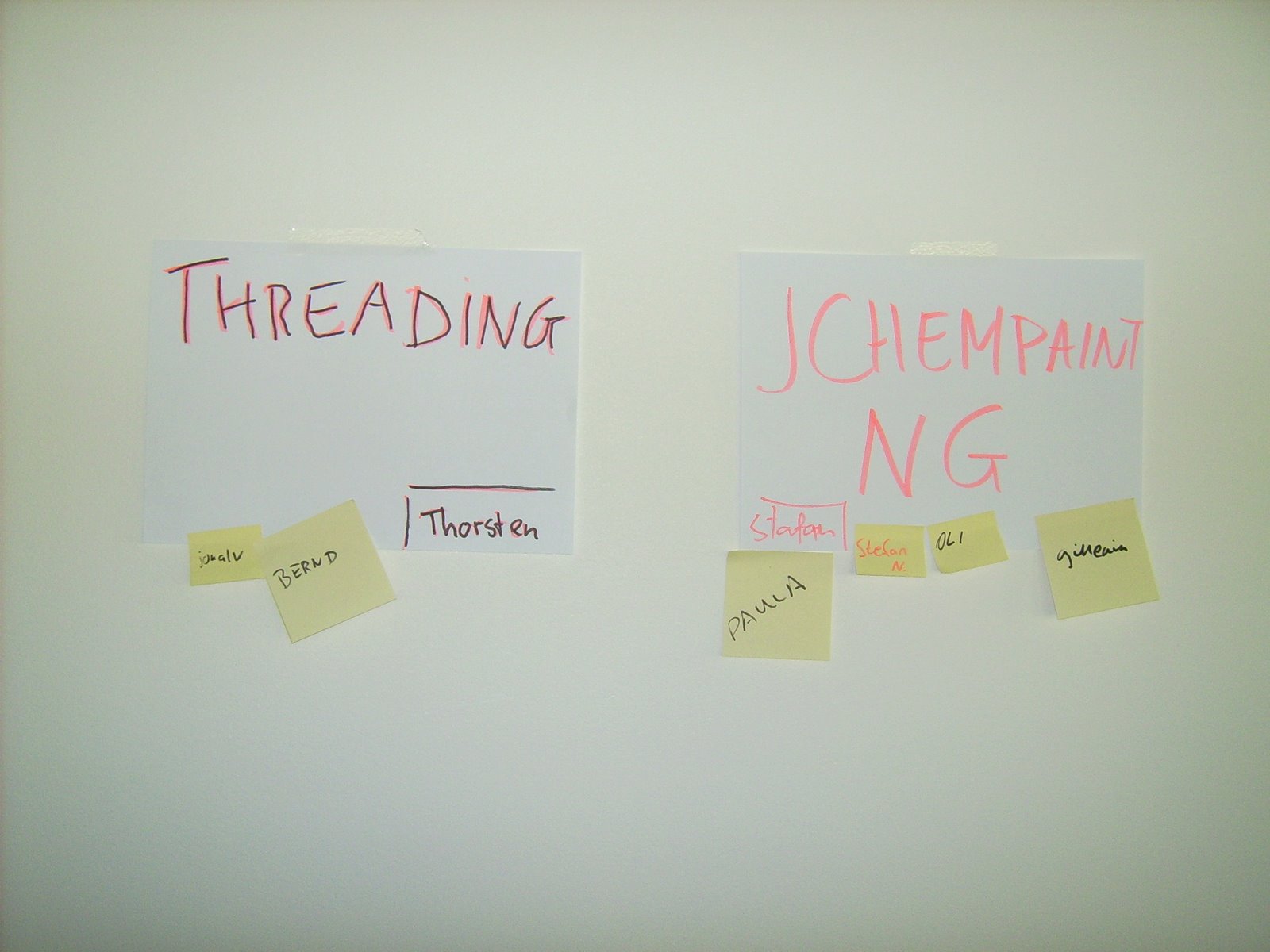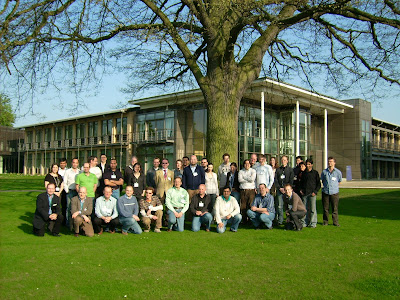-

New FriendFeed layout, but there is a fix...
FriendFeed is the missing link between social [bookmarking|news|…] and IRC (#cdk on irc.freenode.net); I quite like it. Anyway, as of today, they have a new layout, and that I do not like. No more icons for feed types, and big avatar photo’s. Really, I know what my fellow blogger look like (even met many of them in London last year). The rest of the layout is a bit too colourful for my taste.
-
Things to do...
I know I am lagging behind things… been busy and did not have time to reply to everyone yet. Some TOREPLY’s go back more then a month. Sorry about that!
-
CDK Workshop 2009 #3
Last of my writing on the CDK Workshop. It was great fun meeting all the CDK developers and users, and thanx to everyone for all that they contributed, in particular during the unconference part! Yesterday, I had a travel day, and slept 12 hours in one go last nite. This leaves me with a long list of follow emails, CDK patches and many other things to catch up with. But it was more than worth it.
-
My CDK Workshop 2009 Course Material #2
I wrote about my course material, and now complement that with the (three) slides:
-
My CDK Workshop 2009 Course Material
My CDK Workshop 2009 Course Material:

